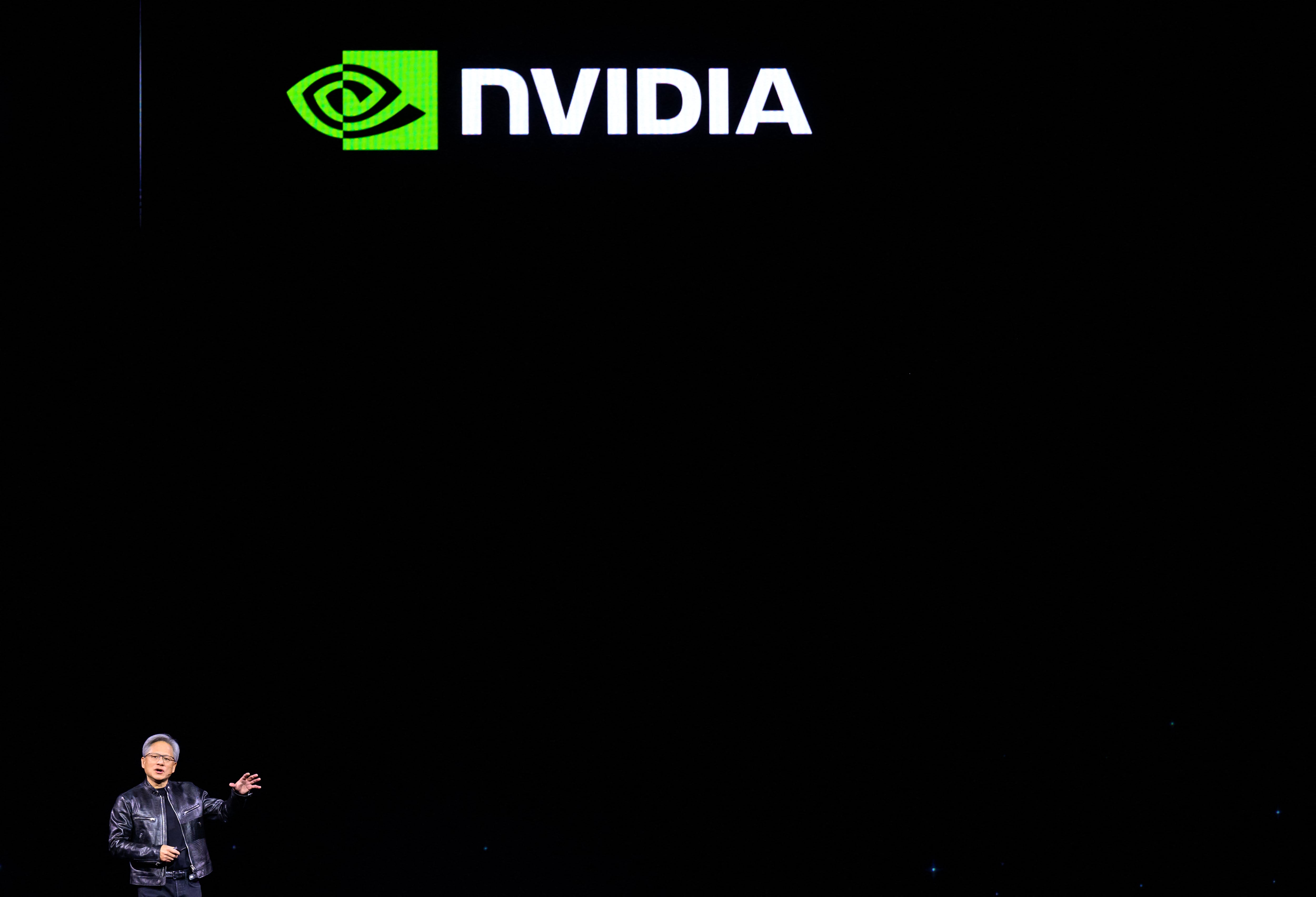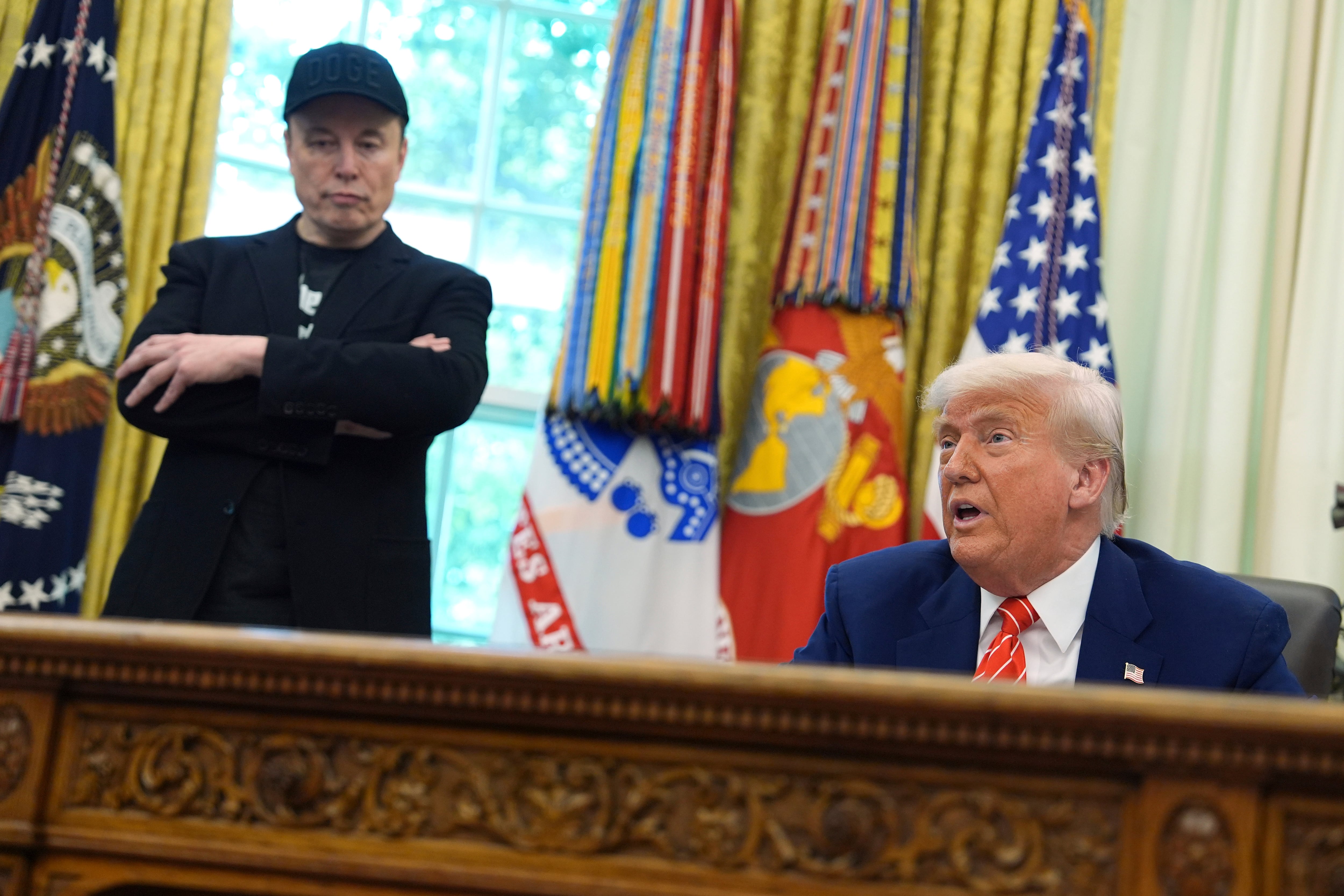Is Nvidia Nvulnerable?
Nvidia, the AI chipmaker that earlier this month became the world’s most valuable company, this week lost nearly 13% of its value, or almost half a trillion dollars in market cap, before clawing back some of the losses. What’s going on with the stock that looked like it was going to power the tech-heavy S&P 500 index to ever greater heights? Well, demand for Nvidia’s chips is outpacing supply, and even if sales this year are expected to double 2023′s $61 billion, the question is whether that demand can last over the long run.
We are certainly just at the beginning of the AI revolution, but there may be more constraints on its wholesale adoption than many people realize. The first is that it’s an expensive and laborious business to train AI bots. Don’t expect them to reliably replace the help line at the air conditioner factory, or make master plumbers obsolete. And forget about AI replacing lawyers, teachers or journalists: The bots still have a very hard time discerning fact from fiction. It could take many years before AI has truly widespread applications.
As Michael Kirkbride, a partner at Evercore Wealth Management, told Bloomberg News, the big fear is that AI turns out to be a bust. “If AI turns out to be not the next internet and turns out to be the next telco,” he said, referring to the massive growth in telecom stocks in the 1990s, “this will be a lot of ill [spent] money.”
To read Big Business This Week a day before everyone else, subscribe here, for free, to get it as an email newsletter!
The Usual Suspects
- Zucked Away: Attorneys general from 45 states and D.C. have sued Meta for “unfairly ensnaring” kids and teens on Facebook and Instagram. “A lot of these decisions ultimately landed on Mr. Zuckerberg’s desk,” Raúl Torrez, the attorney general of New Mexico, told The New York Times. “He needs to be asked explicitly, and held to account explicitly, for the decisions that he’s made.”
- Turbulent Skies: Boeing’s plan to buy back Spirit AeroSystems, the fuselage maker it spun off two decades ago, has hit a speed bump. Seems Boeing’s burning through about $1 billion in cash a month, so now it’s offering Boeing stock instead, which would tie Spirit’s fate even more closely with Boeing’s. Shares in Spirit fell 6 percent in pre-market trading on the news of the shares offer. Meanwhile, European rival Airbus, Spirit’s other main customer, lost $12 billion in market cap after announcing that supply chain issues will cut its forthcoming deliveries from more than 800 planes to only 770 planes.
- Software Wars: An EU Hope: Microsoft got whacked by the European Union this week for bundling Teams, its nearly universally disliked video-meeting software, with the Office 365 and Microsoft 365 suites. The EU says its preliminary findings show Microsoft was illegally using its market dominance to squeeze out Zoom and Slack (which most human beings seem to prefer). Will Clippy go to Euro-jail?
- Software Wars: The EU Strikes Back: Meanwhile, Apple got whacked by the EU for freezing out competition on the App Store and could be forced to pay a fine of up to 10 percent of its annual global revenue—and lose a lucrative part of its business.
- Elon’s World: Tesla told the National Highway Traffic Safety Administration that it was recalling the
IncelcaminoCybertruck over a faulty windshield wiper motor and a piece of trim in the truck’s bed that could fly off. The wiper motor will be replaced for free, and a little more glue will go under the truck-bed.
Tweet of the Week
No Oblivion for Rivian
VW said it will invest up to $5 billion in Rivian, the failing California-based electric-carmaker in a deal that could presage Rivian’s absorption into the Wolfsburg, Germany–based auto giant. The deal would get VW the software expertise analysts say it needs, while Rivian, which lost $5.4 billion last year, would get the carmaking know-how that it apparently lacks. VW says it will invest $1 billion at the start and, if regulators approve, up that to $5 billion over time. Rivian has been losing about $39,000 on each SUV it produces, but said the VW cash would help it complete a new factory in Georgia and launch the R2 SUV, which will sell for about $45,000. (The R1 is about $75,000 before rebates and discounts.) Rivian and VW each had a 5.1% share of the U.S. electric vehicle market in Q1 2024. Rivian shares are up about 40% since the announcement, but down nearly 90 percent over the past five years. VW shares have remained virtually unchanged for the week.
The Old College Try Fail
College grads — and dropouts — with student debt were set to see their monthly payments halve in July, but lawsuits filed by two groups of Republican-led states prompted judges in Kansas and Missouri to issue separate rulings that put those lower payments on hold. The impact is expected to be substantial. The SAVE program ties loan payments to a borrower’s income, and some 4 million borrowers would have ended up with zero dollars owed monthly. The rulings didn’t strike down the whole program, but they do limit new applicants and would also freeze provisions that would let some borrowers see their loans forgiven completely. Student loan advocates say the only reason they can see for the suits is political posturing, trying to prevent President Biden from chalking up an accomplishment in an election year. The disruptions come as millions of borrowers have just begun making payments again after a 42-month hiatus during the pandemic.
Everything Old Is New Again: International Piracy Edition
The Motion Picture Association has hired a former FBI agent to tackle the growing problem of international piracy, which has gone way beyond BitTorrent. Last week, five men were convicted of conspiracy to commit criminal copyright infringement for operating Jetflicks, a streaming site that offered a stolen lineup of TV shows and movies that was larger than the combined catalogs of Netflix, Hulu, Vudu, and Amazon Prime Video. The five would scout other pirate sites like Pirate Bay and Torrentz, download already-pirated shows, and bundle them into a $9.99-a-month service.
Larissa Knapp, a 27-year FBI veteran, will lead a new push by the entertainment industry to pursue criminal cases against content pirates. “We’re a long way from guys on street corners selling counterfeit DVDs. This is global organized crime,” Charles Rivkin, the MPA’s chief told The New York Times. “The people stealing our movies and television shows are also involved with sex trafficking, money laundering — all the ills of society.”
Since 2017, the MPA has cut the number of illegal streaming sites in North America to 200 from 1,400. In 2021, the MPA estimated piracy was costing the industry about $29 billion a year, nearly 30 percent of its annual revenue.
Citi’s Crumbling. Can CEO Jane Fraser Save It?
Hard to tell, because after her past three years in the corner office, things have not improved. As the Wall Street Journal put it recently: “Two decades of half-measures, strategic missteps and chronic underinvestment have led Citi, once the world’s largest financial-services company, to this: a network that operates in 160 countries but badly lags behind its U.S. rivals in profitability and stock performance. A firm famed for its ties to foreign central banks that can’t stay out of the Federal Reserve’s doghouse for weaknesses in its internal controls. A glittering roster of clients who too often turn elsewhere for their most important needs.”
In the past 20 years, the four largest U.S. banks have fared very differently in the eyes of investors. JPMorgan Chase’s stock is up more than 400 percent. Wells Fargo’s share price has doubled. Bank of America has never really recovered from the 2008 crash and is down about 6% in two decades. But Citi is a real downer: It’s lost 87 percent of its market cap in the same period.
That’s put enormous pressure on Fraser to succeed quickly. But quick may not be possible, and some analysts say there’s a risk Citi will be split up. That’s what Fraser wants to avoid. Still, A series of poor internal controls and embarrassing goofs have Citi now operating under consent decrees requested by the Federal Reserve, a far cry from 1998, when financier Sandy Weill convinced Citi’s staid chair John Reed to merge Travelers Group with Citicorp, creating an $83 billion behemoth with interests in traditional banking, consumer finance, insurance and investment banking.
Fraser has built a turnaround plan on slimming Citi and focusing on what works; it’s not original, perhaps, but Citi already serves more than 90% of the Fortune 500 and a fourth of the world’s billionaires, mainly through its services arm and its foreign-currency trading desk, a base for reaching to offer more services to more customers and into the growing market of small and medium-size enterprises.
Peter S. Green is a veteran reporter and editor who has spent more than two decades covering business and finance from Eastern Europe to New York City, and has worked for Bloomberg News, The New York Post, The New York Times and The Messenger. He lives in New York City and is always looking for the next big story.









